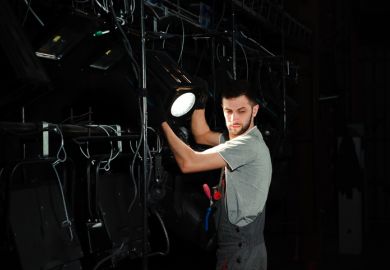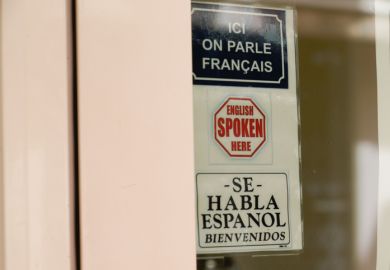Evidence of the value of technology in the humanities is “thin on the ground”, and more must be done to make clear the benefits of computerised methods within the discipline, a conference is set to hear.
Melissa Terras, director of the University College London Centre for Digital Humanities, will tell the UCL Festival of the Arts that although digital techniques are widely used by humanities scholars, the vital role of technology within the discipline is frequently overlooked.
“Evidence for the value of digital humanities, or the use of digital tools and techniques of any sort in the humanities, seems to be hidden,” Professor Terras told Times Higher Education, ahead of her “Decade in Digital Humanities” lecture, which will place at UCL on Tuesday.
“For example, when people consult digitised items of historical documents, they tend to cite the original document itself, rather than the digital file available on the website: it can be incredibly hard to see evidence of people using newer digital methods in the reporting mechanisms which exist for humanities work, which always requires returning to the primary historical evidence as source, not its digital intermediary.”
Professor Terras said that scholars were “only at the start” of the process of investigating and theorising what it means to be using digital methods for more traditional humanities scholarship.
“As a result, people see the investment in [technology] and processes, and ask ‘where is the evidence to support this level of investment?’.”
She added: “Those of us working in digital humanities have to be a bit better in communicating both the scope of the work we do, and the potential for others, as well as showing evidence of use, to ensure we get continued investment.”
Elsewhere in her lecture, Professor Terras will look back at the decade she has spent working in the area of applying computing to different areas of humanistic research, ranging from the 3D scanning of museum collections to the development of a mobile app for text analysis.
Register to continue
Why register?
- Registration is free and only takes a moment
- Once registered, you can read 3 articles a month
- Sign up for our newsletter
Subscribe
Or subscribe for unlimited access to:
- Unlimited access to news, views, insights & reviews
- Digital editions
- Digital access to THE’s university and college rankings analysis
Already registered or a current subscriber?




